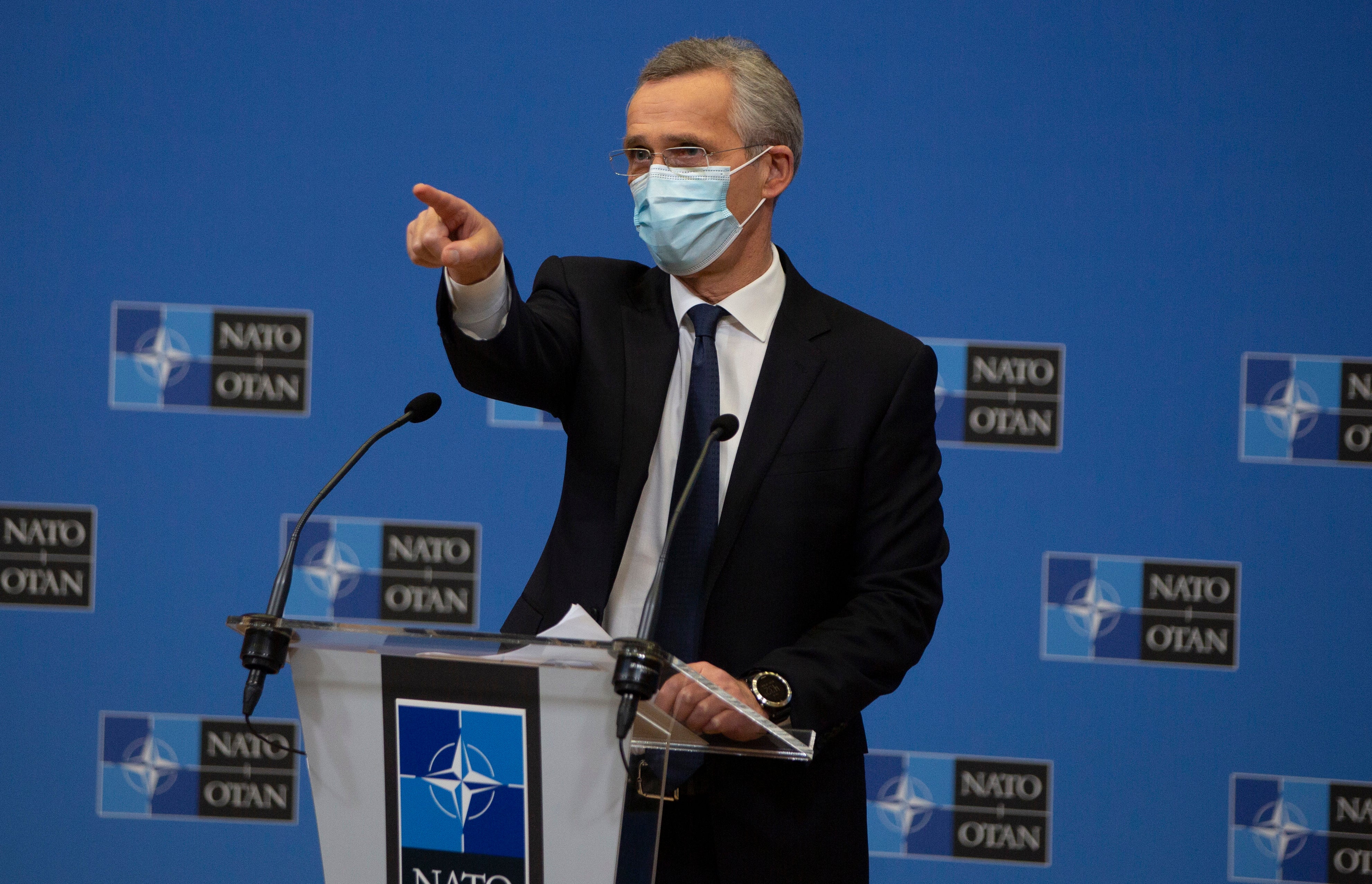NATO chief urges Afghan govt, Taliban to step up peace talks
NATO's chief is urging the Afghan government and the Taliban to step up the pace of peace talks amid doubts over whether the military alliance will pull thousands of troops out of Afghanistan by May

Your support helps us to tell the story
From reproductive rights to climate change to Big Tech, The Independent is on the ground when the story is developing. Whether it's investigating the financials of Elon Musk's pro-Trump PAC or producing our latest documentary, 'The A Word', which shines a light on the American women fighting for reproductive rights, we know how important it is to parse out the facts from the messaging.
At such a critical moment in US history, we need reporters on the ground. Your donation allows us to keep sending journalists to speak to both sides of the story.
The Independent is trusted by Americans across the entire political spectrum. And unlike many other quality news outlets, we choose not to lock Americans out of our reporting and analysis with paywalls. We believe quality journalism should be available to everyone, paid for by those who can afford it.
Your support makes all the difference.NATO Secretary-General Jens Stoltenberg on Thursday urged the Afghan government and the Taliban to step up the pace of peace talks amid doubts over whether the military alliance will pull thousands of troops out of the country by a May deadline.
NATO has just under 10,000 troops in the war-ravaged country, helping to train and advise the Afghan security forces. Most are not U.S. forces, but those troops could not continue the NATO operation if American transport, logistics and other support were withdrawn.
President Joe Biden is reviewing his predecessor’s 2020 deal with the Taliban, which includes a May 1 deadline for a final U.S. troop withdrawal. In Washington, calls are mounting for the United States to delay the final exit or renegotiate the deal to allow the presence of a smaller, intelligence-based American force.
“The problem is that we are in a situation where we have a date — the 1st of May — approaching and so far we have seen that the peace talks are fragile,” Stoltenberg said after chairing a meeting of NATO defense ministers, including new U.S. Defense Secretary Lloyd Austin.
“The talks are fragile, and progress is slow. So, it is now imperative to re-energize the peace process,” Stoltenberg said, referring to the stalled negotiations in Qatar between the Afghan government and the Taliban.
Violence is also spiking and culprits include the Taliban, the Islamic State group, warlords and criminal gangs. Earlier Thursday, two lecturers at Kabul University were killed when a bomb attached to the car they were traveling in went off. No group immediately claimed responsibility.
None of the 30 NATO member governments has publicly argued that security conditions are right for a withdrawal, and many allies would probably support a longer stay if the U.S. requires it, diplomats say.
“At this stage, we have made no final decision on the future of our presence,” Stoltenberg said.
With the U.S. review ongoing it’s unlikely that any firm decision on the future of NATO’s operation will be made before the organization’s foreign ministers meet in mid-March.
Asked whether NATO might, on the contrary, increase troops numbers, Stoltenberg said that “we will do what is necessary to make sure that our troops are safe. We have adjusted the troop numbers before, but I will not speculate because now the focus is on making sure that the peace talks are successful.”
NATO took control of international security operations in Afghanistan in 2003, two years after a U.S.-led coalition ousted the Taliban for harboring former Al Qaeda leader Osama bin Laden. It’s the military alliance’s longest, costliest, and most ambitious operation ever.